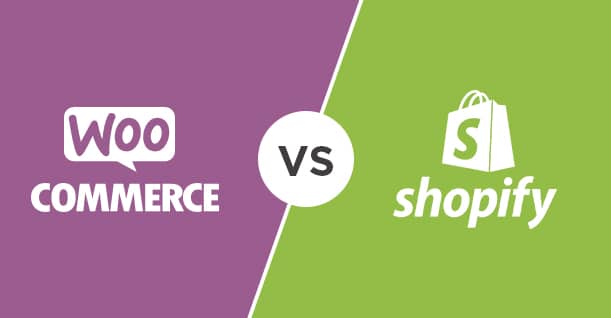Shopify and WooCommerce are the two top eCommerce platforms in the world, each with its own pros and cons.
As a business owner, choosing the right eCommerce platform that fits your business needs is crucial for your success.
There exists an array of pros and cons of WooCommerce vs Shopify that are worth acknowledging before setting foot into the world of eCommerce. In this article, we will walk you through:
What is Shopify?
Shopify is an all-in-one eCommerce solution that makes it easy for you to create an online store, accept payments, and manage your inventory, all from a single platform.
With Shopify, you don’t need to worry about the technical aspects of managing an eCommerce site such as web hosting, security, caching, etc.
What is WooCommerce?
WooCommerce is an open-source eCommerce platform built for WordPress. Therefore, it provides you with the most powerful content management system (CMS) to run an online store. Thanks to its open-source nature, you can customize every aspect of your store and build custom extensions
What to Look for in Your eCommerce Platform?
There are a few things that you absolutely need to keep in mind when starting an online store. These key factors will help you decide which platform is better suited for your needs.
- Budget – The initial cost of starting a fully functional ecommerce store.
- Ease of use – It should be easy to use even for absolute beginners.
- Payment Methods – It should have support for multiple payment methods (e.g. PayPal, Stripe, other merchant processors).
- Integrations – Number of services and third party tools you can integrate to grow your eCommerce business.
- Scalability – The platform should be able to scale as your business grows.
| Features | Woocommerce | Shopify |
| Round 1: Ease of Use | Excellent | Poor |
| Round 2: Themes and Flexibility | Great | Great |
| Round 3: Product presentation and features | Good | Good |
| Round 4: Payment options | Good | Good |
| Round 5: Customer Logins and Checkout options | Great | Great |
| Round 6: Shipping Cost Settings and Carrier integration | Good | Good |
| Round 7: Tax Settings | Great | Great |
| Round 8: Multilingual capabilities | Ok | Great |
| Round 9: Security | Excellent | Ok |
| Round 10: SEO capabilities | Good | Great |
| Round 11: Uptime & Pagespeed | Great | Good |
| Round 12: Support | Great | Ok |
| Round 13: Prices | Good | Good |
| Side-by-Side Comparison | 4.7/5 | 4.4/5 |
Which eCommerce platform is more flexible?
WooCommerce offers more flexibility due to its larger extensions library. It runs on top of WordPress so it can be used for blogging and a business website at the same time. Works with all email platforms like Mailchimp, and more. You can easily optimize your website using an SEO plugin.
You also get more WooCommerce themes. More importantly you can easily use tools to boost conversions and abandoned cart recovery.


 MEWS is a full service web development Internet marketing company and technology integrator founded in 2003, by leading industry consultants with previous technology experience.MEWS is an Internet services and solutions company with interests in website development – Mobile applications– domain name registrations - web hosting.
MEWS is a full service web development Internet marketing company and technology integrator founded in 2003, by leading industry consultants with previous technology experience.MEWS is an Internet services and solutions company with interests in website development – Mobile applications– domain name registrations - web hosting.